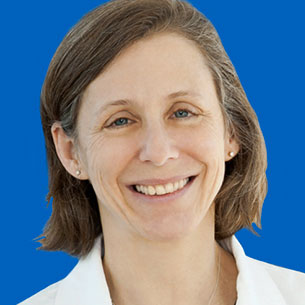It will come as no surprise to any reader of this magazine that our field is experiencing enormous change. Oncology has always been a challenging profession—many of us care and/or advocate for very sick patients, and too often the job involves being the bearer of bad news—but as the complexity of cancer care has increased, so too have the pressures on oncology professionals in every setting.
In our cover story, we look at four practices determined to adapt to the changing care landscape. The changes required a dedicated investment of time, effort, training, and resources, and in every case those investments have paid dividends in the form of increased practice efficiency, quality of care, and patient satisfaction. These practices worked incredibly hard to make their goals a reality, and they didn’t have to go it alone: they were able to access resources, data, and expertise through ASCO Clinical Affairs.
Dr. Miriam A. Knoll and Dr. Nabil P. Rizk offer another case study on embracing change from their own institution, where Dr. Rizk led an effort to develop a robotic-assisted video-assisted thoracoscopic surgery program. As the surgical team implemented this new paradigm and conquered the learning curve, they refused to accept any decrease in care quality. A key takeaway from their conversation is that lowering costs can go hand-in-hand with improving outcomes.
Along with our practice, our research enterprise is also evolving. Dr. John W. Sweetenham offers a few words of caution about the use of big data. While these large data sets offer tantalizing promise for our clinical research, we must be vigilant about critically assessing their quality and validity. Let’s be careful to only use the label “real-world evidence” for sources worthy of the name, that represent the real world in which we practice and that deliver credible data that we can trust.
In a similar vein, Dr. Rajshekhar Chakraborty offers practical advice for oncology trainees (and all of us, really) on how to flex our critical thinking muscles. In an era of information overload, we must be savvy appraisers of evidence and keen assessors of medical literature. We can hone our critical abilities with attention and practice.
And yet, the more things change, the more things stay the same. Dr. Mark A. Lewis shares an erudite reflection on the expectation that oncologists ought to be prophets. Despite all of the information at our fingertips and all of the gains we’ve made in treating cancer, there is still so much we don’t know—so many questions we can’t answer.
We are all learning to adjust to new ways of practicing, new ways of thinking, new ways of collaborating, new ways of conducting research. The landscape of cancer care will evolve in ways that we can’t even imagine yet. No matter what the future brings, the constant will always be our shared commitment to ensuring that every single person affected by cancer receives the best possible care.


Recent posts